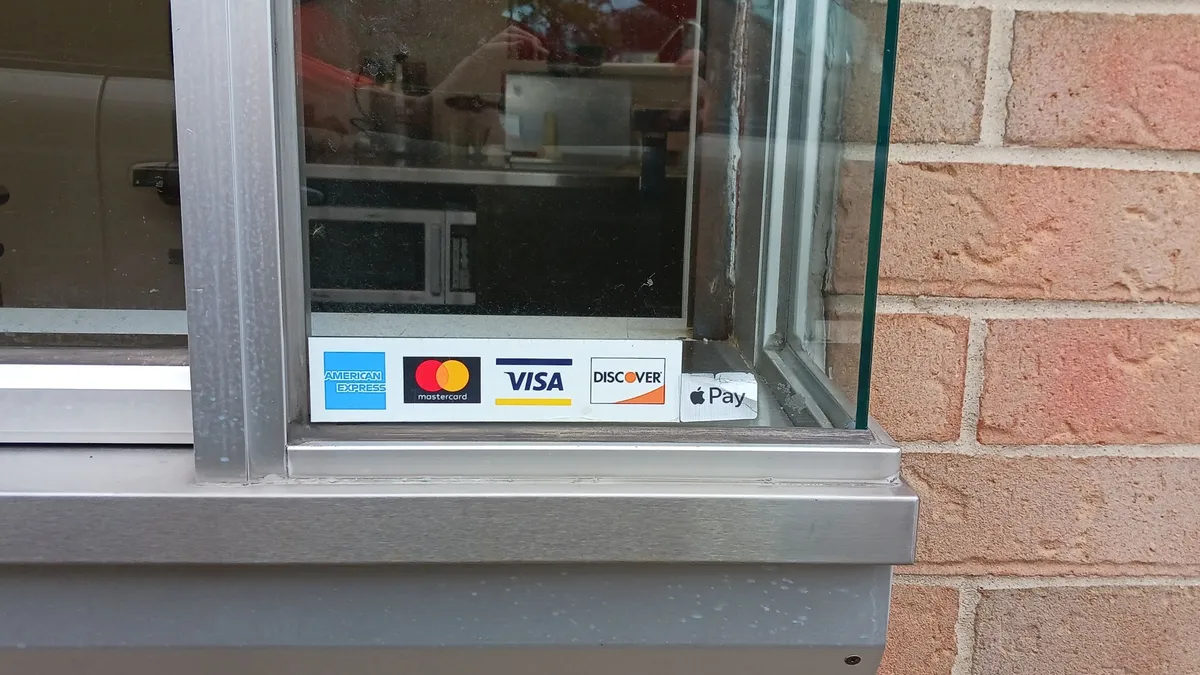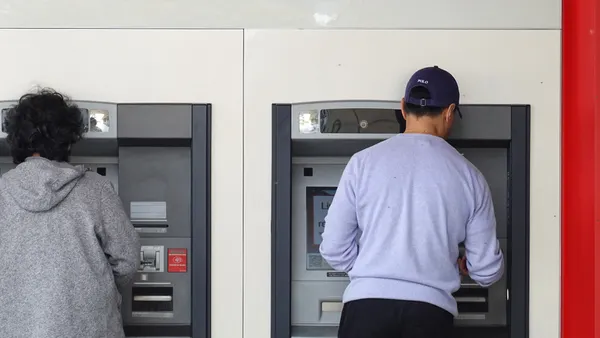A third of small businesses in the U.S. are now adding surcharges to credit card transactions, according to a recent J.D. Power survey.
The data analytics firm surveyed 3,841 U.S. small businesses in August through October and found that 34% said they added a surcharge when a customer paid with a card. This was the first J.D. Power survey that included a question about surcharges and credit cards.
The results of the annual survey carry possible implications for credit card networks, said John Cabell, managing director of payments intelligence for J.D. Power.
Card networks charge merchants interchange fees — also called swipe fees — on credit card transactions. Those fees typically amount to between 2% and 4% of the total value of the transaction, according to the National Retail Federation.
“A lot of consumers are saying that [surcharges] are influencing their payment decision,” Cabell said.
Financial advice website LendingTree surveyed 1,555 credit card holders in August 2023 and found that 73% said they would use credit cards less if they had to regularly pay surcharges when they use those cards.
Consumer satisfaction was also marginally lower for merchants that assessed these surcharges, J.D. Power found in its survey, which was released Jan. 14. Satisfaction rates were 24 points lower (on a 1,000 point scale) for businesses that add credit card surcharges to a customer’s bill, compared with those that don’t, the survey found.
“The 24 point difference in cost of processing satisfaction is based on scores of 628 for those merchants who levy surcharges and 652 for those merchants who do not,” a J.D. Power spokesperson said in an email.
While the data firm did not ask about surcharges in previous surveys, Cabell said the extra costs do seem to have become more prevalent recently.
“We have seen in the last few years service fees and convenience fees crop up at various types of businesses,” he said. “I think that merchants increasingly are passing on costs to consumers in a more explicit fashion.”
Interchange fees became a political lightning rod in recent years as state and federal lawmakers put credit card networks in the spotlight over whether the extra costs charged to merchants should be permitted or not.
State legislatures, for example, have passed laws limiting such fees. One of those states is Illinois, which sparked controversy when it passed a law saying that the fees couldn’t be imposed on taxes and tips.
Congressional panels have also grilled card network executives over the fees, suggesting that Visa and Mastercard have a monopoly in the market that allows them to charge excessive fees.
Banks that issue the cards and the major card networks are fighting back.
A U.S. District Court judge partially halted the Illinois law that would have barred interchange fees on taxes and tips after a coalition of groups that represent banks and credit card networks — including the American Bankers Association — challenged it.
Judge Virginia Kendall imposed a partial preliminary injunction in December that said the law applied to state banks and credit unions, but prevented the state from applying it to national banks and federal savings associations.












